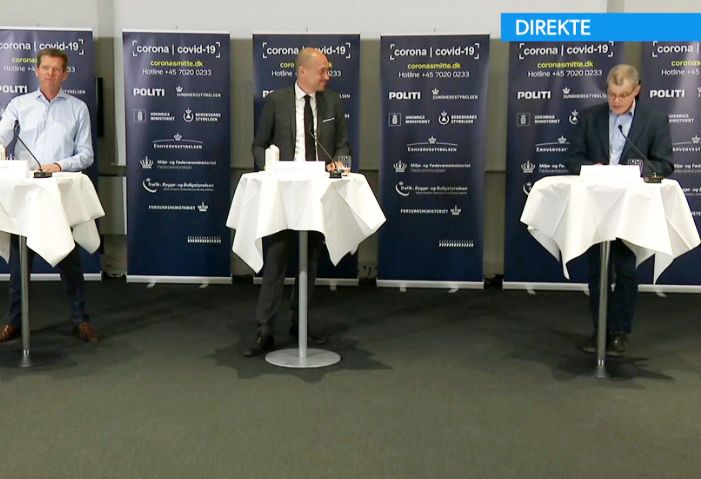I’d hazard a guess that not many internationals had heard of Sundhedsstyrelsen before the coronavirus lockdown. But now barely a day passes without another press conference presented by the Danish health authority, armed with yet more recommendations to ease us through the Coronavirus Crisis.
Conflicting paths
It must be said that not all of its advice has been sound – in direct contrast to the Danish PM Mette Frederiksen who has trodden a steady path, consistently making sense throughout the crisis. No wonder her popularity is booming!
Søren Brostrøm, the head of Sundhedsstyrelsen, has been constantly at loggerheads with ministers, health officials and, at times, the entire public. Often seen to be chewing a wasp on the same stage as the politicians, he has questioned many of their decisions. And hindsight hasn’t been kind to his zig-zagging direction.
Vehemently opposed to the government’s ‘abrupt’ decision to enforce a total lockdown of schools and airports, Brostrøm forcefully argued that there weren’t enough studies, nor was there any proof that a lockdown would reduce the coronavirus infection rate in the long term. He favoured the Swedish model at first …
Years of practice
But while Sweden’s death toll has been far higher than its Scandinavian neighbours, it comes nowhere near to matching the same rates seen in southern European countries such as Spain and Italy.
An explanation, perhaps, can be found in the social norms of Scandinavia, as many of its inhabitants happily live in isolation. You could argue that they have been practicing social distancing for a long time, even in times of peace, and long before the Coronavirus Crisis came along.
In Norway, when its own health authority advised the public to keep a minimum of two metres distance from one another, many people joked: “Do we have to get that close?” In many regions of Norway, one has to travel several miles before noticing the next property.
In northern parts of Sweden, there is also a huge distance between people’s homes, while in sparsely populated Greenland, according to reliable sources, they haven’t had a new case of coronavirus for days.
These are indications, therefore, that the spread of the virus is mostly contained in Scandinavia because normal life entails living apart from one another. And they’re not particularly chatty by nature either.
The remote village existence might not be one of the more celebrated elements of the Scandinavian lifestyle, compared to hygge for example, but it is paying dividends now.
In the quiet zone
When I lived in Sweden, I was always surprised on my daily train journey how passengers sat so quietly, neither conversing nor choosing seats adjacent to one another. Frequently I found myself checking whether I had stumbled into the quiet zone.
People do not hug and kiss strangers when they meet them, and they do not socialise in the way they do in southern Europe, where big crowds often gather.
The overall result is that social distancing has been easy to implement without much difficulty.
The singles game
It’s also worth noting that a large portion of the adult population in capital cities like Copenhagen and Stockholm live as singles. In the Danish capital, around 40 percent do so, mostly in apartments.
More than half of all Swedish households are single-person entities – the highest in the whole of the European Union. Again, this has made it easier to practise social distancing, which even Sundhedsstyrelsen would admit has been quintessential to curbing the number of infections.
For some it’s been hard because their cities have become increasingly multicultural. But in reality, their lifestyle of sitting in cafes and bars is a newly learned social behaviour, acquired like many of their food habits from other cultures. Reconnecting with their agrarian roots, when far more people lived in remote and sparsely populated areas with limited contact with the world, is inherent in their DNA.
Given the Scandinavian disposition to respecting one another’s personal space and human right to personal integrity, I feel that Sundhedsstyrelsen missed a golden chance to trust in society. Instead it introduced the rather alien concept of social distancing. Had it consulted anthropologists, it might have come up with a more human approach.


